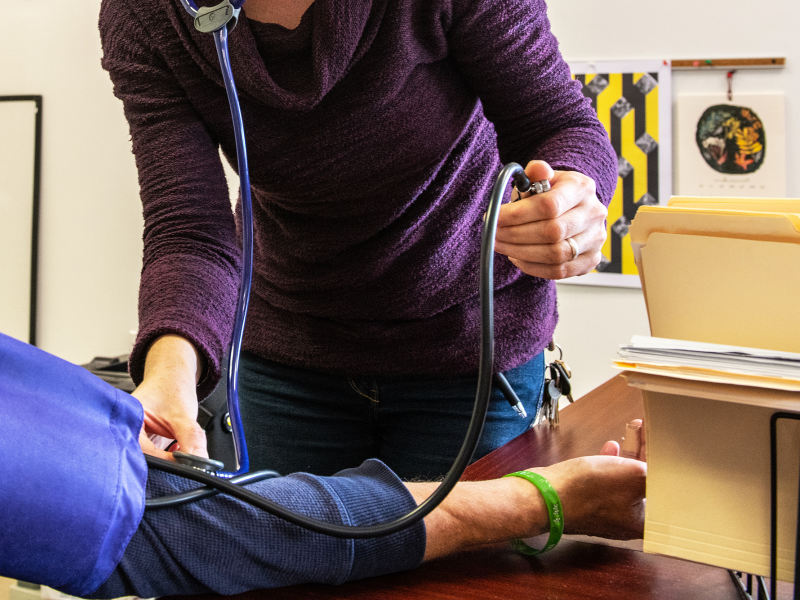Drexel Medical Students Get A Special Lecture From Pathways Participants
This fall, several medical students from Drexel University got a lecture from some non-traditional teachers. Pathways’ participants Anthony, Francis and Sandra teamed up with our Director of Primary Care and Research, Dr. Lara, to help these students see what medical care looks like from their perspective. Are you jealous you missed the event? Me too! But don’t worry-today we get to hear from them about three important lessons they learned.
1. Just Treat Us Like We’re Human
“When Lara’s three guests were asked to give us advice on how we should interact and deal with future patients that may be homeless and/or are dealing with mental illness, they all responded with the same answer, ‘Just remember that we are still human beings too.’”
“At the end of the session, the people on the panel shared with the students that something we can do as physicians is to treat them like human beings. This has been forever etched into my heart. I will surely meet them with the compassion they deserve.”
2. Your Words Have An Impact
“The first thing Dr. Weinstein said that made me pull my notebook out was, ‘If you see stigma, or anything that looks like it, you are obligated to stand up against injustice.’ That idea greatly moved me because, until then, I had underestimated the influence that physicians can have on our social climate… I now recognize that I not only have to care for people on an individual level, but also to protect their rights at the greater societal level.”
“Before this talk, I was not familiar with the notion that 'noncompliant' had a negative connotation and had heard it used around the hospital on multiple occasions to describe patients. I am grateful that I had the opportunity to learn about how it promotes this sense of giving up on a patient and labeling them as someone who refuses to take medication without addressing why.”
3. Relationships Make All The Difference
“During a question and answer session, a student asked one of the participants what changed his mind in beginning to take medications for his schizophrenia after refusing it for years. He responded with “persistence.” He met Dr. Weinstein multiple times for a few years and she was persistent. It took time for them to develop trust and for him to believe it would help.”
“As stated by all of the panelists, sometimes all a person really needs to change his or her life and overcome a seemingly insurmountable obstacle is for SOMEONE to care, and truly care.”
“The most touching moment of this Brown Bag discussion was without question the Q&A segment with current participants of the Pathways program. Through their words, their stories and their answers to our questions, it was clear that Pathways had made a profound impact on all of their lives.”
To stay tuned for more fun Pathways events, and visit some yourself, follow us on Facebook and Twitter
About the Author
Becca DeWhitt is an MBA candidate at Temple University. She is passionate about creating a world where everyone's experience and perspective is valued, and sees story-telling as a powerful tool to that end.


